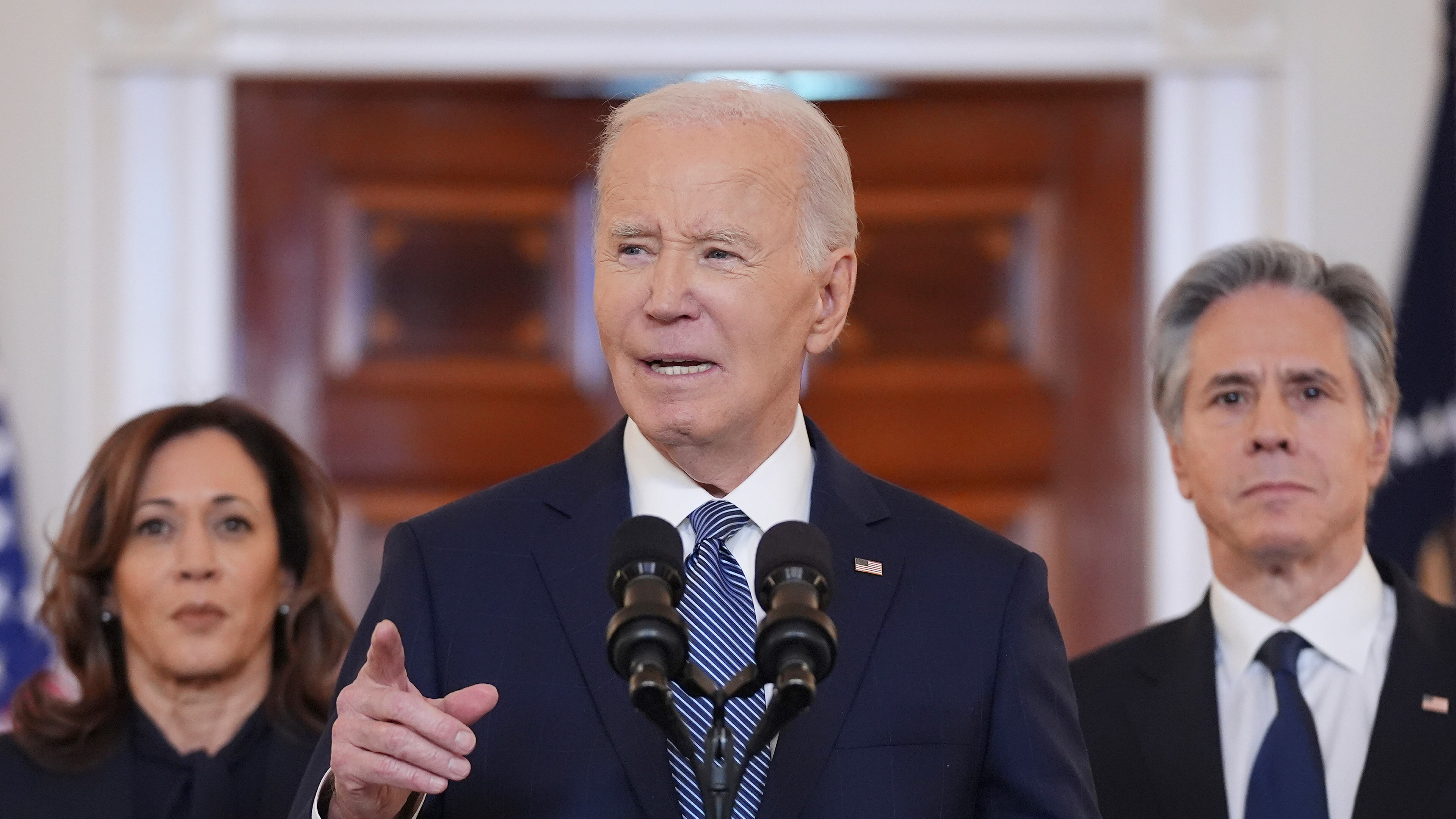WASHINGTON (AP) — Joe Biden and Donald Trump are both claiming credit for the ceasefire agreement between Israel and Hamas in Gaza, after the White House included the president-elect’s envoy for the Middle East in the months-long negotiations.
PUBLICIDAD
The agreement, reached after weeks of tough negotiations in the capital of Qatar, promises the phased release of dozens of hostages held by Hamas, the release of hundreds of Palestinian prisoners in Israel, and would allow thousands of displaced people in Gaza to return to what remains of their homes.
PUBLICIDAD
According to the Prime Minister of Qatar, Mohammed bin Abdulrahman Al Thani, the agreement will come into effect on Sunday, January 19th.
What did Biden and Trump say after the announcement of the agreement?
Trump wasted no time in claiming that he was the driving force behind the agreement.
"This epic ceasefire agreement could only have happened as a result of our historic victory in November, as it signaled to the entire world that my government would seek peace and negotiate agreements to ensure the security of all Americans and our allies," Trump wrote on social media. "I am thrilled that American and Israeli hostages will return home to be reunited with their families and loved ones."
Trump added that his next envoy for the Middle East, Steve Witkoff, would continue “working closely with Israel and our allies to ensure that Gaza never again becomes a safe haven for terrorists.”
In turn, Biden emphasized in a statement that an agreement was reached under "the precise lines" of a plan he established at the end of May.
"It is the result not only of the extreme pressure that Hamas has been under and the changing regional equation after a ceasefire in Lebanon and the weakening of Iran, but also of tenacious and meticulous American diplomacy," Biden said. "My diplomacy never stopped in its efforts to achieve this."
Later, in statements at the White House, Biden said that his administration negotiated the agreement, but that the Trump team will soon be responsible for ensuring that it is implemented, a gesture towards Steve Witkoff as a partner in the talks.
"During the past few days, we have been talking as one team," said Biden.
According to the New York Times, Benjamin Netanyahu spoke with Trump and thanked him for his help in the release of hostages, according to a statement from the prime minister's office. It was also reported from the same office that Netanyahu also spoke with President Biden and thanked him for his help in reaching the agreement.
Collaboration between the Biden and Trump teams.
The Biden government's open support for the participation of the incoming Trump team in the talks is based on the president-elect's influence with Netanyahu and his threats that there would be "hell to pay" if an agreement was not reached by Inauguration Day, which is in five days, said three current U.S. officials.
The officials, who spoke on condition of anonymity to provide confidential details, said that their interest in having Witkoff participate in the discussions alongside Biden's Middle East envoy, Brett McGurk, had as its main goal to ensure that an agreement had the continued support of the United States after Biden left office.
However, since Witkoff entered the final round of talks in Qatar, alongside McGurk, these US officials have downplayed the relevance of Trump in the process.
How was the ceasefire agreement achieved?
The negotiators from the United States, Qatar, and Egypt, along with the Israeli team, worked until the early hours of Wednesday, just one floor above where the Hamas negotiators were holed up, the official said.
Later on Wednesday, Hamas made several last-minute demands, but "we stood very firm" and Hamas ended up accepting the terms of the agreement, said the U.S. official.
The plan, recently outlined on Tuesday by Secretary of State Antony Blinken, envisages an international presence in Gaza to collaborate and assist the Palestinian Authority, based in the West Bank, in both governance and reconstruction. It also envisions the temporary presence of foreign security forces in the territory to address Israeli security concerns.
